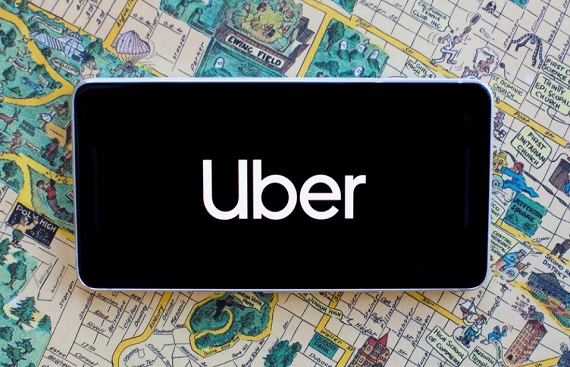Ride-hailing boost for women: Half a million more to join the workforce by 2028
By
siliconindia | Friday, 15 December 2023, 04:36 Hrs

Uber, India’s most preferred ride-hailing app, released a pioneering research report that sheds light on the transformative role of ride-hailing platforms in empowering women and fostering economic opportunities in India. The industry report, titled "Ride-Hailing: A Platform for Women's Economic Opportunity in India," unveils a compelling view of how these services are playing a transformative role in bringing more women into the workforce.
Appreciating the initiative and focusing on the need for further work in ride hailing sector, Smt. Smriti Irani, Hon’ble Union Cabinet Minister for Women & Child Development and Minority Affairs said, “It helps that organizations such as Uber recognize or understand better, not only the challenges related to women’s participation in workforce, but the opportunities at the grassroots level. We have 55% of our GDP’s contribution from service sector; there is a lot that is happening at the grassroot, which can get serviced or supported by initiatives such as yours”.
Prabhjeet Singh, President, Uber India and South Asia said, “Greater women’s participation in the workforce is vital for India to realize its economic potential. This research by Oxford Economics highlights how a lack of safe, reliable commuting options are preventing women from working outside the home. I’m heartened to see how Uber and other ride-hailing options are helping solve this ‘gender commute gap’ by providing women a safe and convenient option to get to work, whether directly or to their nearest mass transit station. Uber is proud to help Indian women take part in the country’s economic success story - today and in the future".
Bali Kaur Sodhi, Lead Economist, Oxford Economics said, “Women around the world still participate less than men in paid work. The issue is not that women are less educated or less qualified; it largely reflects the fact that women still take the burden of household and care work, especially in emerging markets. This report gives an evidence-based policy recommendation for the adoption of technology in helping remove mobility barriers for women to enter the workforce or move up in their careers".
The research report also draws from a survey conducted across five Indian cities. In partnership with Uber, Oxford Economics conducted a survey of Uber riders to gain a comprehensive understanding of the ride-hailing behaviours of women and men across five cities in India Bengaluru, Chennai, Delhi, Kolkata, and Mumbai. Women in Indian cities have lower labour force participation rates than their global peers. Compared with a worldwide female labour force participation rate of 47% in 2022, the figure for India was just 37%. As per the report, the two biggest challenges to women’s mobility are a lack of access to safe transport and the current imbalance in their work-family arrangements.
Commissioned by Uber - Oxford Economics, an independent global advisory firm, has authored the report which illuminates the important subject of women’s participation in the workforce and offers a glimpse into the potential economic benefits to the individuals and the larger economy that can be realized by 2028. To estimate the economic benefits of increasing access to ride-hailing, Oxford Economics was given access to anonymized and aggregated proprietary data from Uber.
